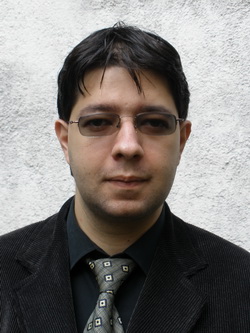COMMUNITY GOVERNANCE and ACTIVE CITIZENSHIP
The area of Community Governance and Active Citizenship reflects ARDR's concern with community-building links and networks as these guarantee the sustainability and multiplication of community social capital on the pillars of collective identity and common vision, shared decision-making and collective action.
In working to improve cooperation through mutually supporting contributions coming from the public, private and non-profit sectors, community institutions and organizations are brought together by social, cultural, economic, political, environmental and attitudinal factors in identifying community resources, both material and spiritual. Defining, establishing and maintaining a democratically legitimate strategic leadership of community governance processes through cooperative behaviours builds a sense of community belonging and marks a gradual shift from the participation in to the ownership of community affairs, a rationale that ARDR fully subscribes to in identifying the contents of community needs and in promoting leaders capable of managing positive change. In this view of social, participatory and institutional network governance, managing community capital accordingly is a learning process about dynamic stakeholdership involving accommodation of diverse views and interplay of interests in the context of grass-roots level engagement.
ARDR has made it part of its vision and mission to develop the local and regional civil society, to connect competencies and capacities for inter-institutionally led social initiative and action; active citizenship comes as proof of a shared practice of responsibility, association and partnership via public policies which emerge as a result of consolidated and structured dialogue, consultation, negotiation and co-decision. By bridging research and action projects, ARDR is working toward the establishment of local action and initiative groups based in all the major institutions within a community as well as toward setting up community boards and community development panels for community vision building; their role is to stimulate the growing need to address citizen rights and duties more responsibly and to approach democratic practices of decision-making regarding common goods, and championing ideals of self- and community representation in the aggregation and articulation of interests.
RURALEARN
RuraLearn is aimed at encouraging leader-type participatory principles in rural areas to guide citizens through the stages of participatory rural development. By focusing on local partnerships and the use of local resources, RuraLearn will create and strengthen networks within the community, and in between communities, in order to facilitate the exchange of information.
RuraLearn works to improve local public administrations by strengthening citizens: participation in all aspects of civic life, bringing together all community actors in order to have meaningful dialogues to discuss community needs.
RuraLearn trains local persons to become effective community developers and spurs the creation of local action groups, bringing in a representative cross-section of the population in order to set priorities, design and implement action plans based on the needs of the community.
RuraLearn also aims at providing targeted information and visibility of local communities through an online portal as well as through a network of community journalists. This twofold approach combines the use of information technology and "old fashioned" face-to-face contact to provide citizens with information they need to participate in civic life through weekly community information including community events, trainings, newsletter, and volunteer opportunities.
SOCIAL RELATE
Heightening awareness of important social issues affecting the community is the goal of the Social Relate Program.
Social Relate gives people the tools to live a healthy and productive life by providing non-formal education on topics such as women's reproductive issues, STDs & AIDS, proper nutrition, the importance of exercise, stress management, and environmental health, ensuring that all people living in rural and urban areas will prosper in the coming years.
Social Relate works to minimize the social cleavages in communities by promoting programs aimed at dispelling stereotypes and discouraging discrimination towards minority groups.






